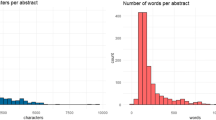Abstract
Despite recent cracks in the dominant Hobbesian world picture of international relations (IR) – as the resurgence of neo-Kantianism in the area of ‘global justice’ bears witness – a discussion of friendship still remains absent. This article focusses on the important debate concerning the possibility of a global ‘difference principle’: that principle which John Rawls in A Theory of Justice considers an ‘expression of fraternity’ between citizens. Although in his later work Rawls explicitly denies that his difference principle applies worldwide and between ‘people’, others (most famously Charles Beitz and Thomas Pogge) defend a global version of it nonetheless. Yet, there is no talk of fraternity by these latter thinkers. I argue that both these positions are mistaken. Not only is an analysis of friendship necessary for any adequate account of justice – whether domestic or global – but the form this political friendship takes emerges as critical to the substantive debate.
Similar content being viewed by others
Notes
For just some examples, see Beitz, 1979; Pogge, 1989, 2001, 2002; Rawls, 1971, 1999; Wendt, 1999; O’Neill, 2000; Gould, 2004; Brock and Moellendorf, 2005.
For instance, Deutsch, 1957; Adler and Barnett, 1998; Wendt, 1999; Kacowicz et al, 2000; Oelsner, 2007.
For my critique of the anti-globalization argument, see Schwarzenbach (2009, Chapter 8), where I argue that this group of thinkers overstates their case; integration need not be exploitation, even if at present it often is.
Even the (nearly all male) United Nations has recently called on the wealthy member nations to give 0.7 per cent of their GNP to end world hunger (2007). Granted such a call is ‘voluntary,’ but it clearly shows that many in the Third World desire to move in this direction and also think it feasible.
From 1990–2000, for example, two million children died in wars, roughly three times the total number of American soldiers killed throughout history (Jamieson, 2005, p. 155).
References
Adler, E. and Barnett, M. (eds.) (1998) Security Communities. Cambridge, UK: Cambridge University Press.
Beitz, C. (1979) Political Theory and International Relations. Princeton, NJ: Princeton University Press.
Boulding, K. (1978) Stable Peace. Austin, TX & London, UK: University of Texas Press.
Brock, G. and Moellendorf, D. (eds.) (2005) Current Debates in Global Justice. Dordrecht, The Netherlands: Springer Verlag.
Buzan, B., Waever, O. and Wilde, J. de. (1998) Security: A New Framework for Analysis. Boulder, CO: Lynne Rienner.
Dahbour, O. (2005) Three models of global community. In: G. Brock and D. Moellendorf (eds.) Current Debates in Global Justice. Dordrecht, The Netherlands: Springer Verlag, pp. 201–224.
Deutsch, K. (1957) Political Community and the North Atlantic Area: International Organization in the Light of Historical Experience. Princeton, NJ: Princeton UP.
Fisher, H. (2000) The First Sex: The Natural Talents of Women and How They are Changing the World. New York, NY: Ballantine Books.
George, A. (2000) Foreword. In: A.M. Kacowicz, Y. Bar-Siman-Tov, O. Elgström, and M. Jerneck (eds.) Stable Peace Among Nations. Latham, Australia: Rowman & Littlefield Publishers, pp. i–xvii.
Gould, C. (2004) Globalizing Democracy and Human Rights. Cambridge, UK: Cambridge University Press.
Hobbes, T. (1972) Man and Citizen. Ann Arbor, MI: University of Michigan Press.
Jamieson, D. (2005) Duties to the distant: Aid, assistance, and intervention in the developing world. In: G. Brock and D. Moellendorf (eds.) Current Debates in Global Justice. Dordrecht, The Netherlands: Springer Verlag, pp. 151–170.
Kacowicz, A.M., Bar-Siman-Tov, Y., Elgström, O. and Jerneck, M. (eds.) (2000) Stable Peace Among Nations. Latham, Australia: Rowman & Littlefield Publishers.
Lesaffer, R. (2002) Amicitia in renaissance peace and alliance treaties (1450–1530). Journal of the History of International Law 4 (1): 77–99.
Martin, R. and Reidy, D. (eds.) (2006) Rawls's Law of Peoples: A Realistic Utopia? Oxford, UK: Blackwell Publishing.
Oelsner, A. (2007) Friendship, mutual trust, and the evolution of regional peace in the international system. Critical Review of International Social and Political Philosophy 10 (2): 257–280.
Oelsner, A. and Vion, A. (2011) Friends in the region: A comparative study on friendship building in regional integration. International Politics 48 (1): 129–151.
O'Neill, O. (2000) Bounds of Justice. Cambridge, UK: Cambridge University Press.
Pogge, T. (1989) Realizing Rawls. Ithaca, NY: Cornell University Press.
Pogge, T. (2001) Priorities of global justice. In: T. Pogge (ed.) Global Justice. Oxford, UK: Blackwell, pp. 6–23.
Pogge, T. (2002) World Poverty and Human Rights: Cosmopolitan Responsibilities and Reforms. Cambridge, UK: Polity Press.
Pogge, T. (2005) Real world justice. In: G. Brock and D. Moellendorf (eds.) Current Debates in Global Justice. Dordrecht, The Netherlands: Springer Verlag, pp. 29–53.
Rawls, J. (1971) A Theory of Justice. Cambridge, MA: Harvard University Press.
Rawls, J. (1999) The Law of Peoples. Cambridge, MA: Harvard University Press.
Risse, M. (2005) What we owe to the global poor. In: G. Brock and D. Moellendorf (eds.) Current Debates in Global Justice. Dordrecht, The Netherlands: Springer Verlag, pp. 81–117.
Roshchin, E. (2006) The concept of friendship: From princes to states. European Journal of International Relations 12 (4): 599–624.
Schmitt, C. (1996) The Concept of the Political. Chicago, IL: University of Chicago Press.
Schwarzenbach, S. (2009) On Civic Friendship: Including Women in the State. New York, NY: Columbia University Press.
Tronto, J. (1993) Moral Boundaries: A Political Argument for an Ethic of Care. New York: Routledge.
Vion, A. (2007) When local institutions structure bonds of friendship. Critical Review of International Social and Political Philosophy 10 (2): 281–297.
Wendt, A. (1999) Social Theory of International Politics. Cambridge, UK: Cambridge University Press.
Wolfers, A. (1962) Discord and Collaboration: Essays on International Politics. Baltimore, MD & London, UK: John Hopkins University Press.
Author information
Authors and Affiliations
Rights and permissions
About this article
Cite this article
Schwarzenbach, S. Fraternity and a global difference principle: A feminist critique of Rawls and Pogge. Int Polit 48, 28–45 (2011). https://doi.org/10.1057/ip.2010.40
Published:
Issue Date:
DOI: https://doi.org/10.1057/ip.2010.40




